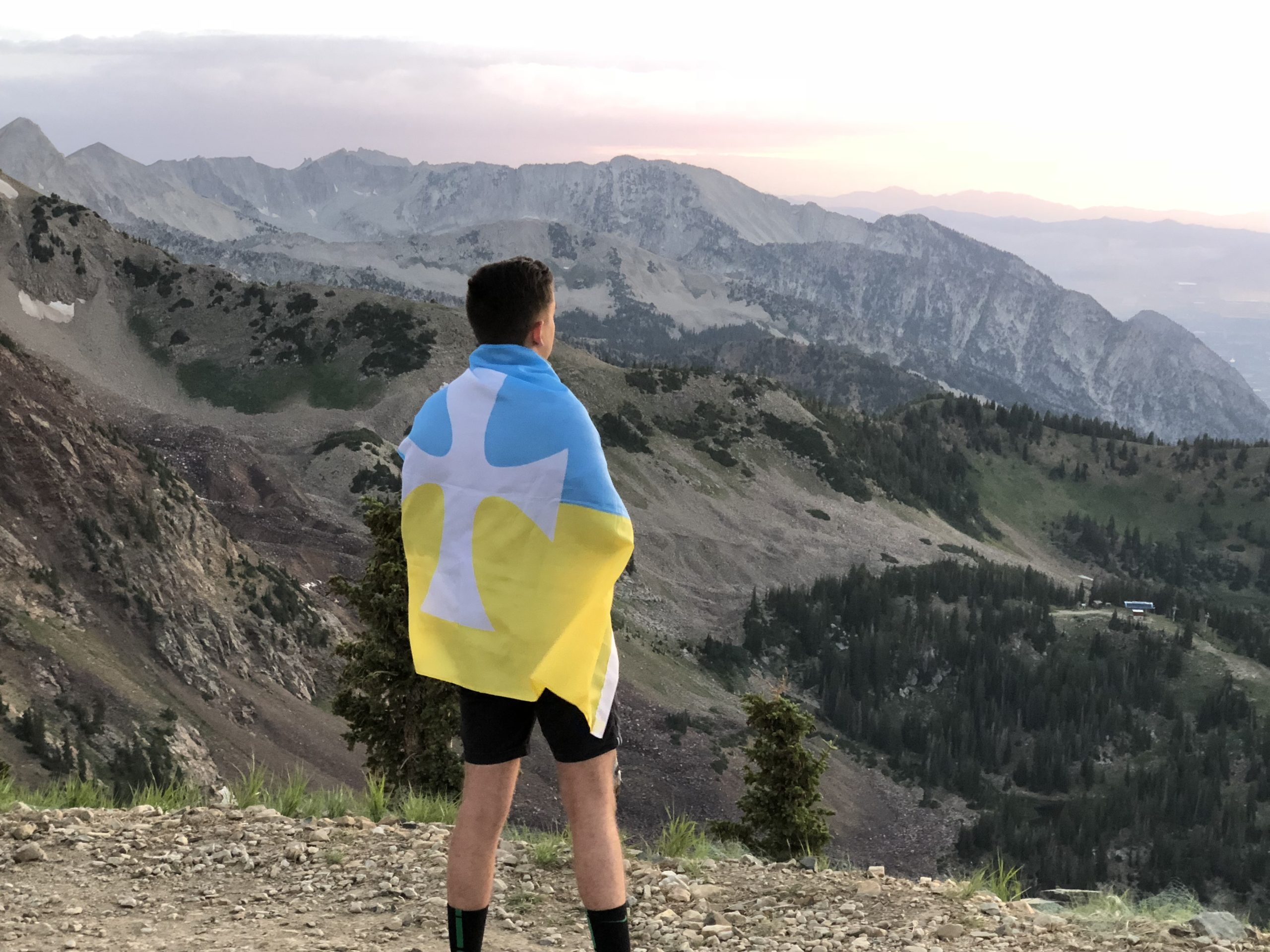
BY RYAN LISKEY, MARQUETTE 2010
Order of Constantine Sig and Significant Sig Bill George, GEORGIA TECH 1964, urges young people to step up and lead with their hearts, not just their heads, in his latest book.
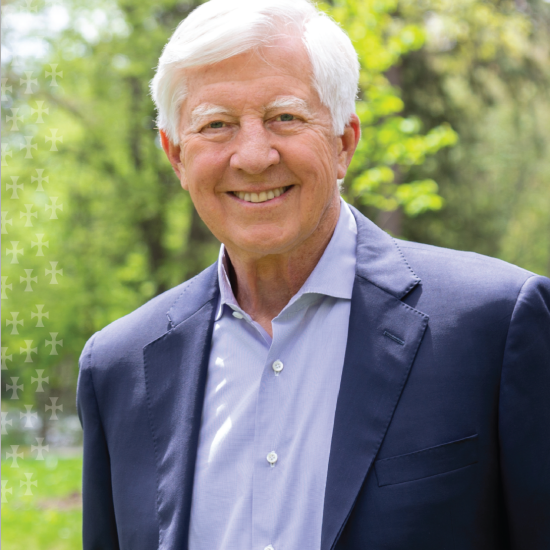
Order of Constantine Sig and Significant Sig Bill George, GEORGIA TECH 1964, released True North: Discover Your Authentic Leadership in 2007. That book, as well as his 2003 debut Authentic Leadership: Rediscovering the Secrets to Creating Lasting Change and subsequent True North editions, have for almost two decades informed Sigma Chi’s approach to teaching leadership to its members. Since 2018, when the organization formally adopted Transformational Leadership as its instructional model, George’s True North concept has become central to it.
His latest book, True North: Emerging Leader Edition, is aimed at inspiring younger leaders to use their capabilities to have a positive impact on the world. It focuses on young leaders who are committed to something greater than themselves and already making a difference in their company or community. George and his coauthor, millennial tech entrepreneur Zach Clayton, share subjects’ stories about challenges they’re facing, how they found their true north and stayed true to themselves while leading through crises. It also includes concrete suggestions for becoming an authentic leader and knowing when — and how — to speak out on complex public issues.
George’s True North and Authentic Leadership books are the basis of the True North (Authentic) Leadership Certificate available through Sigma Chi Leadership Institute and the Transformational Leader program. It is one of three certificate tracks available at the 2023 Krach Transformational Leaders Workshop taking place Aug. 1 to Aug. 5 at Bowling Green State University in Bowling Green, Ohio. Sigs who participate in the course will learn to identify their core values and apply them to everyday situations, actions and decisions.
Below, George answers The Magazine’s questions about True North: Emerging Leader Edition, the leadership lessons he learned in his Fraternity chapter at Georgia Tech, his life in business and time spent teaching at Harvard Business School.
How did you go about identifying the group of emerging that leaders that you included in the book?
We were looking for people who are already taking on leadership roles or making a difference and wanting to hear their stories. We were looking for people that seem to be committed to something greater than themselves — not ego-based leaders or so-called charismatic leaders — but people who really were making a difference already in their careers. [We wanted to] tell their stories about the challenges they’re facing and how they found their true north, about how they stayed true to what they were, how they led through a crisis. [One of the leaders we included is] Jen Hyman who started Rent the Runway. When COVID came along, no one was going out and they didn’t need [rental clothing for social or professional occasions], so she had to restructure the entire business. She’s still restructuring it. That was a huge crisis for her, but in a publicly held company, she’s done a fantastic job. So, we want to understand how people are thinking about their leadership right now, particularly younger leaders who are passing through all those stages where you hit difficult times and what they’ve learned from it, what keeps them going and how they’re leading today.
What motivated you to produce a new edition of True North and to direct it at emerging leaders?
Leadership is going through tremendous change. In the days when I came up, it was much more like a command-and-control type of leadership. Today, it’s really all about empowering people and helping people reach their full potential at all levels of an organization. And I think leadership requires everyone to step up; even if you don’t have a formal leadership role, [being a leader requires you] to take on leadership responsibilities. And so, I felt it was time [to update True North with an emerging leaders focus]. We’ve got a lot of challenges in our world, and I felt it’s really time for younger leaders to step up and take over our organizations. Whether they’re corporations, nonprofits, medical organizations, even in the government, I just think we need to open the door for a lot of younger leaders to take over.
So, this book is hopefully an inspiration to younger leaders to use their capabilities to make a difference in the world and to have a positive impact.
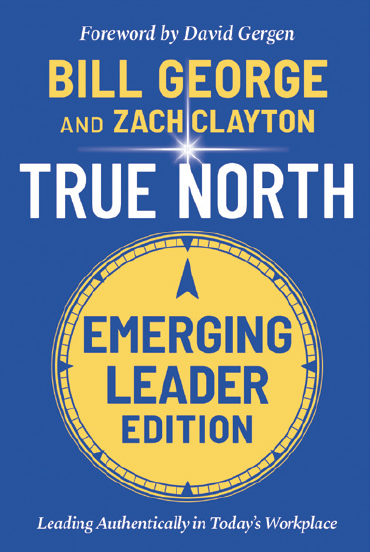
Your True North is not about those identity things. It’s about who you are. That’s where we connect — over our humanity, our purpose, our values, our hopes and our motivations.
~ /////// SIGNIFICANT SIG AND ORDER OF CONSTANTINE SIG BILL GEORGE, GEORGIA TECH 1964 ///////
Do you feel that your undergraduate experience in the Fraternity chapter at Georgia Tech helped you develop as an authentic leader?
I really credit the Beta Chi chapter of Sigma Chi. It was totally transformative for me at Georgia Tech. I remember I came there — and in those days, there were not many people from the North — I’d come from Michigan, 800 miles away. I remember going through fraternity row [during recruitment] and winding up at the Sigma Chi house at the end of it. I remember walking up there and all of a sudden, I felt I was coming home. I had the same feeling at Medtronic 30 years later: I felt like I was coming home to a place I’d never been [and felt] that welcoming presence, that in fact, this is where I belong.
Sigma Chi became my home. It was hard for me to leave when I graduated; I had some very transformative experiences. My initiation experience was very transformative. I was so inspired coming out of that because I had a chance to look at myself and what I was doing wrong. I ran for office six times or something [immediately after my initiation]. I lost all six [elections]. Some seniors in our chapter took me aside and said, “Bill, let me be honest with you. No one’s ever going to want to work with you, much less be led by you, because you’re moving so fast to get ahead, you don’t take time for other people.”
And that was a telling blow because I’d always wanted to be in a leadership role, but they were absolutely right. It was like I was building a resume instead of building relationships. Leadership is all about working with people and building relationships, working with diverse people, people in different backgrounds, different interests, different motivations. And so, I learned more about becoming a leader in my Sigma Chi chapter. One of my greatest experiences was being Magister, and helping people learn about themselves in that process. I still have great relationships with all the people that were my pledges at the time.
So, I’m extremely loyal to Sigma Chi because of what it did for me. That’s where I learned how to lead. I would tell anyone who’s reading this,“Take on the smallest job. Be the house manager, be the social chairman, be the recruitment chair — just do something because you’re going to learn how to lead.”
Something you mention in the book is the importance of creating purpose-driven and inclusive environments. Why do you feel that’s important and what advice do you have for anyone who is looking to create a more inclusive environment in their company, community or Fraternity chapter?
The very first time I entered the Sigma Chi house at 770 Techwood Drive, I felt included. I felt like I belonged. Even today, when I go back to the chapter, I feel included. I feel welcome, even though I’m a lot older than the undergraduates. Having a place where you call home, where you feel included, is key. The workplace should be that, and if it’s not, you’re not going to be happy. No matter how much money you make, no matter how big your title is, you’re not going to be happy.
Inclusion today means we must include people with significant differences. We live in an identity society where we tend to judge people on where they went to school, their race, their religion, their gender, their sexual identity and their national origin. I think that’s wrong. I’ve been thrilled to see [at Fraternity] workshops and Grand Chapter, the diversity in the Fraternity.
Your true north is not about those identity things. It’s about who you are. That’s where we connect — over our humanity, our purpose, our values, our hopes and our motivations. What matters is who you are inside. It may take you awhile to figure it out because there are a lot of rewards, a lot of focus on identity, but if you can make that shift into your true north, then you’re going to have a much more wholesome life. You’re going to feel much better about the people you’re with and around. You’re going to feel like you belong and you feel included, and everyone wants to feel that, I think.
Is there anything else within the book that you feel Sigma Chi readers should know about?
One of the things that every Sigma Chi is going to confront in their life is a test of moral courage. The last chapter in the book is called The Moral Leader. [It examines the question of] Are you true to your values? When you can be true to your values, you’re going to feel good about yourself, no matter how difficult the times are. When you feel like you can be true to who you are, that’s following your True North. But also, that you’re going to be confronted with situations where you have to have moral courage. I remember one of my big tests when I was 23-years-old was going on the stage at Grand Chapter and saying, “Hey, this is wrong. We’re going to lose all of our chapters unless we start accepting people from diverse backgrounds.” We were losing them in a lot of schools and a lot of the older alumni didn’t get it, didn’t support it. *Now they do and that’s a big change, but for me, that took a lot of moral courage to get up there and do that.
And maybe I was a little outspoken in those days, but I felt strongly and passionate. So [I’d ask readers to consider,] what is it that you feel strongly about?
*Editor’s Note: Sigma Chi International Fraternity had in its governance from 1870 to 1961 a clause stating that all members must be white males. The clause’s effects lingered for years afterward, as the Fraternity instituted other procedures — such as requiring chapters to submit photos of all men who had been given bids — that allowed continuing the prevention of initiating non-white men.
Order of Constantine Sig and Significant Sig Bill George, GEORGIA TECH 1964
Order of Constantine Sig and Significant Sig Bill George is the former chairman and chief executive officer of Medtronic. He joined Medtronic in 1989 as president and chief operating officer, was chief executive officer from 1991-2001 and board chair from 1996-2002. He is currently a senior fellow at Harvard Business School, where he has taught leadership since 2004.
Bill is the author of: Discover Your True North and The Discover Your True North Field Book, Authentic Leadership, 7 Lessons for Leading in Crisis, True North, Finding Your True North, and True North Groups. He served on the boards of Goldman Sachs, ExxonMobil, Novartis, Target and Mayo Clinic.
He received his bachelor’s of science in industrial engineering with high honors from Georgia Tech, his MBA with high distinction from Harvard University, where he was a Baker Scholar, and honorary PhDs from Georgia Tech, Mayo Medical School, University of St. Thomas, Augsburg College and Bryant University. He earned Sigma Chi’s 1964 International Balfour Award recognizing him as the Fraternity’s most outstanding graduate that year.
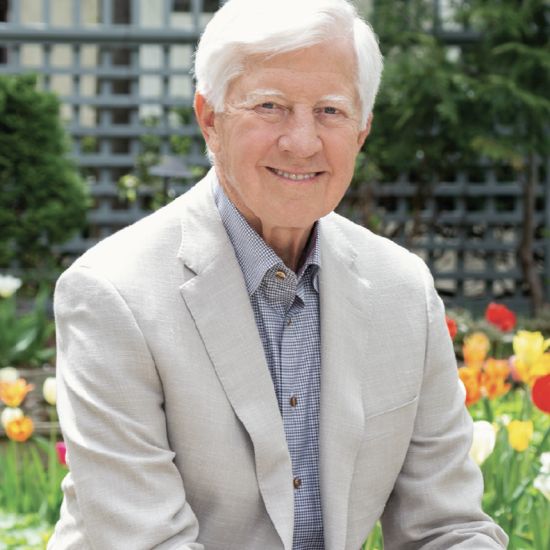
Zach Clayton
Zach Clayton is CEO of Three Ships, which he founded in 2009. Three Ships owns more than a dozen marketplace websites such as Sleepopolis and HouseMethod that help consumers buy mattresses and homes with confidence.
He holds an MBA with high distinction from Harvard Business School, where he was a Baker Scholar, and a bachelor’s from the University of North Carolina-Chapel Hill, where he was a Morehead Scholar. Clayton serves on the boards of the Dix Park Conservancy and the University of North Carolina-Chapel Hill General Alumni Association.
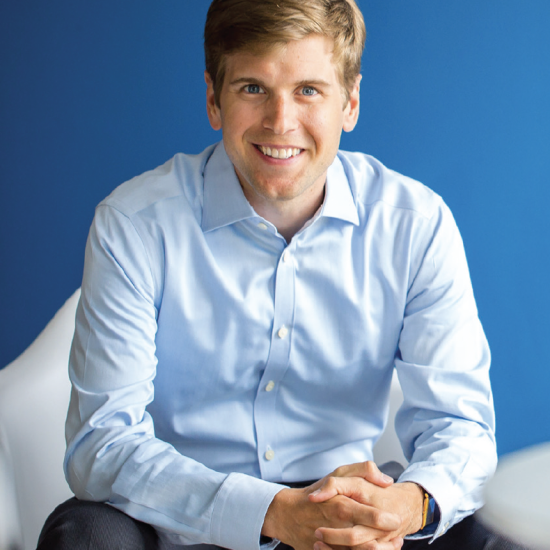
In True North: Emerging Leaders Edition, renowned leadership expert Bill George and Millennial tech entrepreneur Zach Clayton issue the challenge to emerging leaders — from Gen-X to Millennials and Gen-Z — to lead their organizations authentically through never-ending crises to make the world a better place for everyone.
The book is filled with stories from successful leaders such as Microsoft’s Satya Nadella and Merck’s Ken Frazier to Pepsi Co.’s Indra Nooyi and General Motors’ Mary Barra, as well as emerging leaders like OneTrust’s Kabir Barday and Kanbrick’s Tracy Britt Cool of how they overcame great challenges to build successful organizations.

